
Index
Applications & Benefits of GAO’s RFID, BLE, IoT & Drones for Custom Home Construction industry
GAO’s Assists Clients with Standards, Mandates & Regulations of Custom Home Construction industry
GAO Software Provides Easy Integration with API
Case Studies of RFID Applications
GAO RFID Systems & Hardware for Custom Home Construction
GAO Makes Efforts to Satisfy Customers
GAO Has Served Custom Home Construction Industry Extensively
Overview
The Custom Home Construction industry involves the creation of uniquely designed and personalized residential properties that cater to the specific preferences and needs of individual clients. It prioritizes architectural flexibility, high-quality craftsmanship, and client collaboration, allowing homeowners to create one-of-a-kind homes that align with their aesthetic, functional, and lifestyle preferences, albeit often at a higher cost and longer project duration compared to standardized homebuilding.
GAO’s RFID, BLE, IoT, and drone technologies have helped its customers in Custom Home Construction industry to improve their work processes, their operations and productivity by better management of their staff, materials, and operational equipment such as machinery, including excavators, backhoes, bulldozers, skid-steer loaders, wheel loaders, concrete mixers, cranes, dump trucks, compactors, concrete pumps, jackhammers, power tools, scaffolding, generators, surveying equipment, laser levels, welding equipment, air compressors, earth-moving attachments such as augers, rippers, and compaction plates, safety equipment, material handling equipment like forklifts and conveyors, plumbing and electrical tools, demolition equipment such as wrecking balls, concrete crushers, and demolition excavators, and roofing equipment including roofing nail guns, hoists, and safety harnesses.
Ranked as one of the top 10 global RFID suppliers, GAO RFID Inc. is based in New York City, U.S. and Toronto, Canada. GAO offers a comprehensive selection of UHF, HF (including NFC) and LF RFID (radio frequency identification) readers and tags, BLE (Low Energy Bluetooth) gateways and beacons, and various RFID and BLE systems such as people tracking, asset tracking, access control, parking control, fleet management, WIP (work in progress), traceability. Such RFID and BLE products and systems, as well as its IoT and drone technologies, have been successfully deployed for Custom Home Construction industry. Its sister company, GAO Tek Inc. https://gaotek.com, is a leading supplier of industrial or commercial testers and analyzers, drones, and network products.
The targeted markets of both GAO RFID Inc. and GAO Tek Inc. are North America, particularly the U.S., Canada, Mexico, and Europe. As a result, this website gaorfid.com is offered in English and other major languages of North America and Europe such as Spanish, French, German, Italian, Polish, Ukrainian, Romanian, Russian, Dutch, Turkish, Greek, Hungarian, Swedish, Czech, Portuguese, Serbian, Bulgarian, Croatian, Danish, Finnish, Norwegian, Slovak, Catalan, Lithuanian, Bosnian, Galician, Slovene, Latvian, Estonian, Welsh, Icelandic, and Irish.
Applications & Benefits of GAO’s RFID, BLE, IoT & Drones for Custom Home Construction industry

To satisfy its customers, GAO’s RFID or RFID Systems for Custom Home Construction industry are offered in 2 versions. One version is that its software is running on a local server that normally is on our client’s premise, and another version runs in the cloud. The cloud server could be GAO’s cloud server, client’s own cloud server or a cloud server from one of the leading cloud server providers such as Amazon Web Services (AWS), Microsoft Azure, Google Cloud, IBM Cloud (formerly SoftLayer), Oracle Cloud, RedHat, Heroku, Digital Ocean, CloudFlare, Linode and Rackspace. The above illustrates GAO system for sub-industry Custom Home Construction industry software running on a local server.

The above illustrates GAO system for agencies, brokerages, and other insurance related activities industry with its software running in cloud.
GAO’s RFID and BLE technologies, consisting of RFID readers, RFID tags, BLE gateways, BLE beacons, software, cloud services and their systems, have the following applications in Custom Home Construction industry:
- Asset Tracking: RFID tags can be attached to construction equipment, tools, and materials to track their location and usage. This helps prevent theft, reduce loss, and streamline inventory management.
- Tool Management: RFID tags on tools and equipment enable contractors to monitor tool usage, maintenance schedules, and ensure the right tools are available at job sites when needed.
- Inventory Control: RFID can be used to track and manage building materials and supplies, ensuring that the right quantities are available on-site and reducing wastage.
- Access Control: RFID access cards or badges can be used to control entry to construction sites, ensuring that only authorized personnel can access the premises.
- Personnel Tracking: RFID badges for workers can enhance safety by tracking the location of employees on a job site and ensuring they are in the right zones.
- Time and Attendance: RFID technology can be used for accurate time and attendance tracking, simplifying payroll management for construction companies.
- Equipment Maintenance: RFID tags can store maintenance schedules and data for construction equipment, helping with timely maintenance and reducing downtime.
- Material Authentication: RFID tags can be used to verify the authenticity of construction materials, reducing the risk of using substandard or counterfeit products.
- Project Documentation: RFID can be integrated into project management systems to track documents, blueprints, and other important paperwork related to construction projects.
- Work-in-Progress Tracking: RFID can help monitor the progress of different construction phases and components, ensuring that the project stays on schedule.
GAO’s drone technologies find the following applications in the Custom Home Construction industry:
- Aerial Surveys and Mapping: Drones can quickly and accurately capture aerial imagery and topographical data of construction sites. This data is used for site analysis, surveying, and creating detailed site maps.
- Site Inspection and Progress Monitoring: Drones provide a bird’s-eye view of construction sites, enabling project managers to monitor progress, identify potential issues, and make informed decisions without the need for physical site visits.
- 3D Modeling and Site Visualization: Using aerial imagery, drones can create 3D models of construction sites, which are valuable for design, planning, and client presentations.
- Safety Inspections: Drones can access hard-to-reach or hazardous areas on construction sites, allowing for safety inspections and identifying potential safety hazards.
- Quality Control: Aerial imagery captured by drones can be used to assess the quality of construction work, ensuring that it meets the required standards.
- Stockpile Measurement: Drones equipped with LiDAR or photogrammetry technology can accurately measure stockpiles of construction materials like sand, gravel, or lumber, aiding in inventory management.
- Progress Reporting: Drones can generate visual progress reports with annotated images and videos, which can be shared with stakeholders, clients, and investors to keep them informed.
- Security and Theft Prevention: Drones equipped with cameras and motion sensors can help monitor construction sites for unauthorized access or theft, providing real-time alerts to security personnel.
- Environmental Monitoring: Drones can be used to assess the environmental impact of construction projects by collecting data on vegetation, water bodies, and potential erosion.
- Marketing and Sales: Aerial footage captured by drones can be used for marketing and sales purposes, showcasing completed projects or providing clients with a visual representation of the planned development.
GAO’s IoT technologies, consisting of IoT sensors, sensors networks and systems, find the following applications in the Custom Home Construction industry:
- Smart Home Automation: IoT devices can be integrated into custom homes to automate lighting, heating, cooling, security systems, and appliances, allowing homeowners to control and monitor their homes remotely.
- Construction Site Monitoring: IoT sensors can track and report real-time data on construction site conditions, including temperature, humidity, noise levels, and air quality, ensuring optimal working conditions for construction workers.
- Equipment Tracking: IoT-enabled GPS and RFID devices can be attached to construction equipment and tools to track their location, usage, and maintenance needs, reducing theft and loss.
- Energy Management: IoT sensors and smart meters can monitor energy consumption within a custom home, optimizing energy efficiency and helping homeowners reduce utility costs.
- Safety and Security: IoT-connected security cameras, motion detectors, and alarm systems can enhance site security and provide real-time alerts for unauthorized access or safety breaches.
- Inventory Management: IoT sensors can track the quantity and condition of construction materials and supplies, enabling efficient inventory management and reducing waste.
- Environmental Monitoring: IoT devices can monitor environmental factors such as soil moisture levels, temperature, and humidity, which is useful for landscaping and maintaining outdoor areas.
- Construction Equipment Maintenance: IoT sensors on construction machinery can provide data on equipment health and usage, enabling predictive maintenance to prevent breakdowns.
- Workforce Management: Wearable IoT devices like smart helmets or vests can monitor the location and safety of construction workers on-site, ensuring their well-being.
- Remote Surveillance: IoT cameras and sensors can be used to remotely monitor construction progress, ensuring that work is proceeding according to schedule and specifications.
- Waste Management: IoT sensors can help manage waste disposal by monitoring waste bin levels and optimizing waste collection schedules.
- Real-time Collaboration: IoT platforms and communication tools enable real-time collaboration among project stakeholders, including architects, builders, subcontractors, and clients.
- Material Traceability: IoT technology can provide detailed information on the origin, quality, and handling of construction materials, ensuring compliance with regulatory standards.
- Predictive Analytics: IoT data can be analyzed to predict construction challenges or delays, enabling proactive decision-making and risk mitigation.
- Building Performance Optimization: After construction, IoT devices can continuously monitor and optimize a home’s performance, adjusting systems like HVAC and lighting to maximize energy efficiency and comfort.
- Client Experience: IoT-enabled home systems and applications can enhance the overall living experience for homeowners, providing convenience and customization options.
- Remote Diagnostics: IoT can facilitate remote diagnostics and troubleshooting of home systems and appliances, reducing the need for on-site maintenance visits.
GAO’s Assists Clients with Standards, Mandates & Regulations of Custom Home Construction industry
GAO RFID Inc. has developed its products and systems in compliance with industry standards and mandates. GAO has assisted our customers in Custom Home Construction industry to deploy RFID, BLE, IoT and drone systems and to ensure such deployments complying with applicable industry standards, U.S. government regulations and Canadian government regulations such as:
RFID, BLE, IoT, & Drone Standards & Mandates
Certainly, here’s a list of RFID standards related to the Custom Home Construction industry without their descriptions:
- ISO 18000 Series
- ISO 15693
- ISO 14443
- ISO 29167
- EPC Gen2 (ISO 18000-63)
- EPCglobal Architecture
- GS1 Standards
- AIA (American Institute of Architects) BIM Standards
- ASTM E3016-20
- Bluetooth 4.0 and Later
- GATT (Generic Attribute Profile)
- iBeacon
- Eddystone
- Bluetooth Mesh
- Thread
- Zigbee
- BLE Standards for Health and Fitness Devices
- Manufacturer-Specific BLE Implementations
- Z-Wave
- Wi-Fi
- Bluetooth LE (Low Energy)
- MQTT (Message Queuing Telemetry Transport)
- CoAP (Constrained Application Protocol)
- RESTful APIs
- OPC UA (Unified Architecture)
- LoRaWAN
- BACnet (Building Automation and Control Networks)
- Security Standards
- FAA Part 107 (USA)
- ASTM F2919-14
- ISO 21384-3
- ANSI/ASSP Z359.7-2019
- IEEE P2413
- JARUS SORA (Specific Operations Risk Assessment)
- CASA Part 101 (Australia)
- CAA CAP 722 (UK)
Government Regulations
- Building Codes
- Occupational Safety and Health Administration (OSHA) Regulations
- Environmental Protection Agency (EPA) Regulations
- Department of Housing and Urban Development (HUD) Regulations
- National Environmental Policy Act (NEPA)
- Fair Housing Act
- Americans with Disabilities Act (ADA)
- Construction and Demolition Debris Recycling Regulations
- National Electrical Code (NEC)
- National Fire Protection Association (NFPA) Standards
Canadian Government Regulations
- National Building Code of Canada (NBCC)
- Canadian Electrical Code (CEC)
- Occupational Health and Safety Regulations
- Environmental Protection Regulations
- Canada Mortgage and Housing Corporation (CMHC) Guidelines
- Tarion Warranty Corporation Regulations (Ontario)
- Accessibility for Ontarians with Disabilities Act (AODA)
- Municipal Building Codes and Bylaws
- Construction Lien Act (varies by province)
- National Energy Code of Canada for Buildings (NECB)
GAO Software Provides Easy Integration with API
GAO’s RFID and BLE software offers a free trial for both the server-based and cloud versions, and offers an API to the important systems in Custom Home Construction industry such as:
Personnel Management:
- Employee Scheduling and Shift Management
- Payroll and Compensation Management
- Training and Certification Tracking
- Health and Safety Compliance Monitoring
- Performance Evaluation and Appraisal Systems
- HR and Recruitment Management
- Labor Cost Estimation and Analysis
- Employee Benefits Administration
Equipment Management:
- Equipment Maintenance and Inspection Scheduling
- Asset Tracking and Inventory Management
- Equipment Utilization and Efficiency Analysis
- Preventive Maintenance Planning
- Equipment Rental and Leasing Management
- Fuel and Energy Consumption Monitoring
- Equipment Lifecycle Cost Analysis
- Equipment Procurement and Depreciation Tracking
Access Control:
- Site Security and Surveillance
- Visitor and Contractor Management
- Access Control Systems (e.g., Keycards, Biometrics)
- Intrusion Detection and Alarm Systems
- Gate and Perimeter Access Management
- Locking Systems and Key Management
- Time and Attendance Systems
- RFID and Bluetooth-Based Access Control
Warehouse Management:
- Materials Inventory and Storage Management
- Order and Shipping Management
- Barcode and RFID-Based Tracking
- Material Replenishment and Forecasting
- Cross-Docking and Staging Area Management
- Warehouse Layout Optimization
- Return and Rejection Handling
- Material Handling Equipment (MHE) Control
Supply Chain Management:
- Supplier Relationship Management (SRM)
- Procurement and Purchase Order Management
- Demand Forecasting and Inventory Optimization
- Transportation and Logistics Management
- Supplier Performance Monitoring
- Vendor Compliance and Quality Assurance
- Supplier Portal and Collaboration Tools
- Reverse Logistics and Recycling Programs
Other Applications:
- Project Management and Planning
- BIM (Building Information Modeling) and CAD (Computer-Aided Design)
- Financial and Cost Accounting
- Document Management and Control
- Quality Assurance and Inspection
- Customer Relationship Management (CRM)
- Estimating and Bidding Tools
- Mobile Apps for Field Reporting and Data Collection
GAO has enabled its customers to make use of some of the leading software and cloud services in Custom Home Construction industry. Below are some of popular software and cloud services in Custom Home Construction Industry.
Procore, Viewpoint HR Management, Sage HRMS (Human Resource Management System), BuilderTREND, CmiC, B2W Maintain, Asset Panda, HCSS Equipment360, DynaRent, HeavyJob, eMaint CMMS, ADP Workforce Now, Paychex Flex, Workday, BambooHR, and Zenefits, Asset Panda, B2W Maintain, HCSS Equipment360, eMaint CMMS, EZOfficeInventory, and Fiix , Brivo, Kisi, Proxyclick, Honeywell Access Control, Avigilon Access Control Manager, Fishbowl Warehouse, QuickBooks Commerce, SAP Extended Warehouse Management (EWM), NetSuite WMS, Zoho Inventory, SAP Supply Chain Management (SCM), Oracle SCM Cloud, Kinaxis RapidResponse, JDA Software, GEP SMART, Amazon Web Services (AWS) Access Control, Microsoft Azure Active Directory (Azure AD), Google Cloud Identity, Okta, Ping Identity, Oracle Cloud Warehouse Management, SAP Extended Warehouse Management (EWM), Blue Yonder (formerly JDA Software), HighJump Warehouse Management, Infor CloudSuite WMS, Oracle Cloud Supply Chain Management, SAP Integrated Business Planning (IBP), Blue Yonder (formerly JDA Software), Kinaxis RapidResponse Cloud, Oracle Cloud Procurement
GAO has worked with some of the leading technology companies in the Custom Home Construction Industry to provide integrated its RFID, BLE, IoT and drone solutions to customers. Here are some of the technology leaders in Custom Home Construction Industry:
IBM, SAP, Oracle, Microsoft, Cisco Systems, Amazon Web Services (AWS), HP Inc., Dell Technologies, Accenture, Capgemini, Cognizant, Infosys, Wipro, Tata Consultancy Services (TCS), and HCL Technologies, Zebra Technologies, Honeywell, Motorola Solutions, Datalogic, NCR Corporation, Epson, Hewlett Packard Enterprise (HPE), Panasonic, Toshiba Global Commerce Solutions, Casio, Verifone, and Micros Systems , SAP, Oracle, Microsoft, IBM, Infor, Epicor, NetSuite, Sage, JDA Software (Blue Yonder), Manhattan Associates, Kinaxis, HighJump, Logility, Savi Technology, and GT Nexus (an Infor company)
Case Studies of RFID Applications
Below are some RFID application cases in Custom Home Construction Industry.
RFID tags play a crucial role in tracking construction materials, tools, and equipment. Contractors utilize RFID to monitor material availability on-site, reducing the risk of theft or loss. Additionally, RFID tags are affixed to construction equipment and machinery, facilitating precise monitoring of usage, maintenance requirements, and location, ensuring that assets are efficiently maintained and utilized.
RFID access cards and badges are implemented to manage access to construction sites and restricted areas within custom home construction projects. This enhances security by ensuring that only authorized personnel gain entry. Furthermore, RFID-enabled safety gear, such as helmets and vests, enhances worker safety. Monitoring the location and well-being of construction workers on-site and during emergencies becomes more efficient with RFID technology.
RFID tags are deployed to trace the origin and quality of construction materials. This meticulous tracking ensures compliance with regulatory standards and quality requirements. RFID technology also plays a pivotal role in quality control by monitoring the materials used and recording inspection results, ensuring construction work meets specified standards.
RFID sensors are employed for real-time monitoring of construction site conditions, including temperature, humidity, and environmental factors. This data ensures optimal working conditions for laborers. Moreover, RFID technology extends to smart homes within custom construction projects. Here, it can control lighting, heating, and cooling systems to maximize energy efficiency and enhance resident comfort.
Case Studies of IoT Applications
Below are some IoT application cases in Custom Home Construction Industry.
IoT devices are integrated into custom homes to create smart home systems. These systems enable homeowners to control lighting, heating, cooling, security systems, and appliances remotely through smartphones or voice commands.
IoT sensors are deployed at construction sites to monitor real-time data on conditions such as temperature, humidity, noise levels, and air quality. This data ensures optimal working conditions for construction workers.
IoT-enabled GPS and RFID devices are attached to construction equipment and tools to track their location, usage, and maintenance needs. This reduces theft and loss while optimizing equipment utilization.
IoT sensors and smart meters are used to monitor energy consumption within custom homes. This data helps homeowners optimize energy efficiency and reduce utility costs by controlling HVAC systems, lighting, and appliances.
IoT-connected security cameras, motion detectors, and alarm systems enhance construction site security. These systems provide real-time alerts for unauthorized access or safety breaches.
IoT sensors track the quantity and condition of construction materials and supplies. This efficient inventory management reduces waste and ensures materials are readily available when needed.
Case Studies of Drone Applications
Below are some drone application cases in Custom Home Construction Industry.
Drones, equipped with high-resolution cameras and LiDAR technology, are deployed for conducting aerial surveys and generating detailed topographical maps of construction sites. This data empowers architects, engineers, and construction teams during the planning and design phases.
Regular site inspections and real-time progress monitoring are facilitated by drones. They capture images and videos of construction sites, empowering project managers to track progress, identify issues, and ensure alignment with project timelines and specifications.
Drones offer a safer alternative to human workers for inspecting potentially hazardous areas, such as tall structures, roofs, or locations with structural concerns. They mitigate risks by providing visual access to these areas.
Equipped with thermal cameras, drones detect issues like heat leaks, moisture intrusion, or insulation problems within custom homes. This application aids in identifying energy inefficiencies and ensuring compliance with energy efficiency standards.
Drones, featuring photogrammetry software, construct intricate 3D models of construction sites and structures. These models prove invaluable for validating designs, detecting clashes, and visualizing the final appearance of custom homes.
Drones equipped with RFID or GPS technology are employed for tracking the movement of construction materials and equipment on-site. This meticulous tracking enhances inventory management, mitigates material theft, and guarantees timely deliveries.
GAO RFID Systems & Hardware for Custom Home Construction
GAO RFID Inc. offers the largest selection of BLE gateways, BLE beacons, RFID readers, tags, antenna, printers, and integrated RFID systems for various industries, including Custom Home Construction.
BLE (Bluetooth Low Energy)
GAO offers advanced BLE gateways:
as well as versatile beacons with such important functions as temperature, humility, vibration and panic button:
GAO’s BLE technology is suitable for many industries, including Custom Home Construction.
UHF (Ultra High Frequency) RFID
GAO offers the largest selection of UHF RFID readers for various industries, including Custom Home Construction:
GAO RFID offers the widest choice of UHF RFID tags, labels, badges, wristbands for various industries, including Custom Home Construction:
and an array of antennas to address different applications:
HF (High Frequency), NFC (Near Field Communications) and LF (Low Frequency) RFID
GAO offers the largest selection of HF, NFC, and LF RFID readers for various industries, including Custom Home Construction:
HF, NFC and LF RFID tags, labels, badges, wristbands for various industries, including Custom Home Construction:
and antennas:
GAO also offers RFID printers:
Digital I/O adapters:
and relay controllers:
For embedded applications, GAO offers UHF, HF and LF RFID reader modules:
In collaboration with its sister company GAO Tek Inc, a wide selection of high quality drones are offered:
The RFID systems by GAO are highly popular for clients in Custom Home Construction:
Physical asset or operational equipment tracking system:
Assets that can be effectively tracked using GAO’s technologies include:
Excavators, Backhoes, Bulldozers, Skid-Steer Loaders, Wheel Loaders, Concrete Mixers, Cranes, Dump Trucks, Compactors, Concrete Pump, Jackhammers, Power Tools, Scaffolding, Generators, Surveying Equipment, Laser Levels, Welding Equipment, Air Compressors, Earth-Moving Attachments, Safety Equipment, Material Handling Equipment, Plumbing and Electrical Tools, Demolition Equipment, Roofing Equipment.
People or workers tracking system:
Personnel or people access control system:
Parking or vehicle control system:
Furthermore, GAO provides the customization of RFID tags, RFID readers, BLE beacons and BLE gateways, IoT, drones, and systems and consulting services for Custom Home Construction and for various industries in all metropolitans in North America, particularly the U.S., Canada and Mexico, and Europe:
GAO Makes Efforts to Satisfy Customers
Large Choice of Products
In order to satisfy the diversified needs of their corporate customers, GAO RFID Inc. and its sister company GAO Tek Inc. together offer a wide choice of RFID, BLE, IoT, drones, testing and measurement devices, and network products.
Overnight Delivery
In order to shorten the delivery to our customers, GAO has maintained a large stock of its products and is able to ship overnight within continental U.S. and Canada, and fast delivery to anywhere in Mexico and Europe from the nearest warehouse.
Local to Our Customers
We are located in both the U.S. and Canada. We travel to customers’ premises if necessary. Hence, we provide a very strong local support to our customers in North America, particularly the U.S., Canada and Mexico, and Europe. Furthermore, we have built partnerships with some integrators, consulting firms and other service providers in different cities to further strengthen our services. Here are some of the service providers in Custom Home Construction we have worked with to serve our joint customers:
- Industry Associations
- Online Directories
- Consultation
- Networking
- Request for Proposals (RFPs)
- Industry Events
- Market Research Reports
- Consult with a Business Advisor
- ABC IT Solutions
- XYZ Tech Services
- Canadian IT Integrations
- Maple Leaf IT Solutions
- NorthStar Technology Partners
- CanaTech Integration Services
- TechWave Innovations
- TrueNorth IT Solutions
- Consult with Peers
- Trade Shows and Events
GAO Has Served Custom Home Construction Industry Extensively
GAO RFID Inc. and its sister company GAO Tek Inc. together offer a wide choice of RFID, BLE, IoT, drone, testing and measurement devices, and network products.
GAO’s products and technologies have helped its customers in Custom Home Construction Industry to achieve success in
Sustainable Building, Smart Homes, Prefab and Modular Construction, Energy Efficiency, Aging-in-Place, Customization and Personalization, Healthy Homes, Virtual Reality (VR) and Augmented Reality (AR), Zero-Waste Construction, Resilient Construction, Blockchain in Real Estate, 3D Printing, Wellness Design, Prefab ADUs, Distributed Energy Systems, Single-Family Rental Communities, Home Office Spaces, Passive House Design, Zero-Energy Homes, Digital Twins
GAO RFID Inc. has deployed RFID, BLE and IoT projects for many companies in Custom Home Construction, including many in its various divisions such as
- Residential Construction: This is the core division focused on building single-family homes, including custom homes. It involves the construction of the main dwelling, including its structural elements, interior finishes, and exterior features.
- Architectural Design: Architects and architectural firms specialize in designing custom homes based on the client’s preferences and requirements. They create blueprints and plans that serve as the basis for construction.
- General Contracting: General contractors oversee the entire construction process. They manage subcontractors, coordinate construction activities, and ensure that the project stays on schedule and within budget.
- Home Renovation and Remodeling: Some custom home construction companies also offer renovation and remodeling services, allowing homeowners to update or modify their existing homes to better suit their needs.
- Interior Design: Interior designers focus on the aesthetics and functionality of the home’s interior spaces. They select furnishings, color schemes, and décor elements to create a cohesive and visually appealing living environment.
- Landscape Design and Landscaping: Landscape architects and landscapers design and create outdoor spaces around custom homes. This includes features such as gardens, patios, pathways, and outdoor structures.
- Sustainable Construction: This division specializes in building custom homes with a strong emphasis on sustainability and eco-friendliness. It involves using green building practices, energy-efficient materials, and renewable energy sources.
- Custom Cabinetry and Millwork: Craftsmen and carpenters specializing in cabinetry and millwork create custom-built cabinets, built-in shelving, and intricate woodwork within custom homes.
- Roofing and Exterior Finishes: Contractors in this division focus on roofing installation and exterior finishes such as siding, stucco, brickwork, and landscaping features.
- Home Technology and Automation: Specialists in home technology integrate smart home systems, automation, and security features into custom homes, enhancing convenience and efficiency.
- Structural Engineering: Structural engineers ensure the stability and safety of the custom home’s design. They calculate load-bearing capacities and provide engineering solutions.
- HVAC and Plumbing: HVAC (heating, ventilation, and air conditioning) and plumbing professionals install and maintain the systems responsible for temperature control and water supply within custom homes.
- Electrical Systems: Electricians install and manage the electrical systems, including wiring, lighting, and electrical fixtures, to ensure safety and functionality.
- Energy Efficiency Consulting: Consultants specialize in optimizing the energy efficiency of custom homes, helping homeowners reduce energy consumption and utility costs.
- Home Inspection: Home inspectors assess the quality and condition of custom homes before or after construction, providing essential information to homeowners and buyers.
GAO’s technologies enable its customers in Custom Home Construction to effectively track their workforces such as Project Managers, Architects, General Contractors, Interior Designers, Landscape Architects, Construction Workers, Electricians, Plumbers, HVAC Technicians, Roofing Specialists, Carpenters, Structural Engineers, Home Inspectors, Energy Efficiency Consultants, Landscape Contractors, Home Automation Specialists, Cabinetry and Millwork Craftsmen, Structural Engineers, Roofing and Exterior Finish Contractors, Landscape Contractors, Energy Efficiency Consultants, Home Inspectors track operational assets such as Excavators, Backhoes, Bulldozers, Skid-Steer Loaders, Wheel Loaders, Concrete Mixers, Cranes, Dump Trucks, Compactors, Concrete Pumps, Jackhammers, Power Tools, Scaffolding, Generators, Surveying Equipment, Laser Levels, Welding Equipment, Air Compressors, Earth-Moving Attachments, Plumbing Tools, Electrical Tools, Demolition Equipment, Roofing Equipment.
Here are some of the leading companies in Custom Home Construction industry GAO has served:
- Toll Brothers
- PulteGroup
- Lennar Corporation
- KB Home
- Hovnanian Enterprises
- Bozzuto Group
- D.R. Horton
- M/I Homes
- Mattamy Homes
- PCL Constructors
- Tridel
- Brookfield Residential
- Minto Group
- Empire Communities
- The Daniels Corporation
- Onni Group
- Bosa Properties
- Geo Grupo Inmobiliarios
- Desarrolladora Homar
- Consorcio Ara
- Sare Holding
- Cadu Inmobiliara
- Ruba Residencial
- Javer
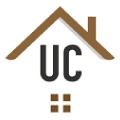

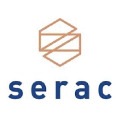
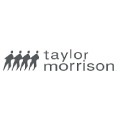


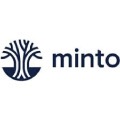
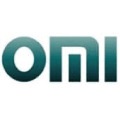
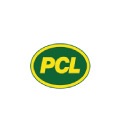
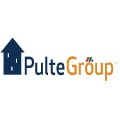

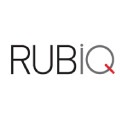


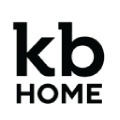

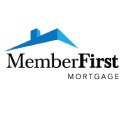


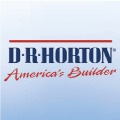
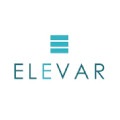


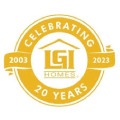
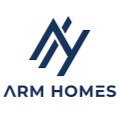





You Are Invited to Contact Us!
If you are interested in our products, services or partnering with us, please feel free to contact us by filling out this form:
or email us at sales@gaorfid.com
